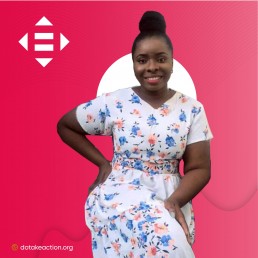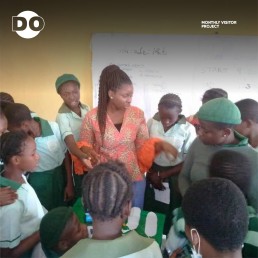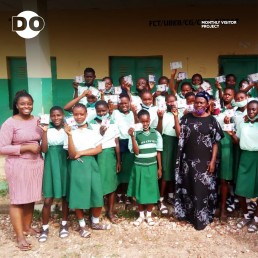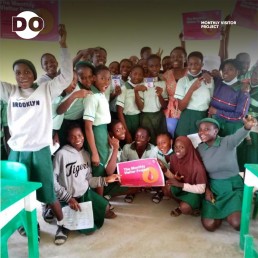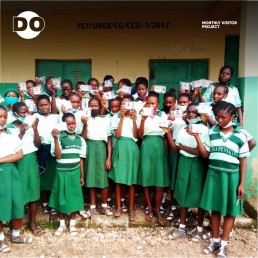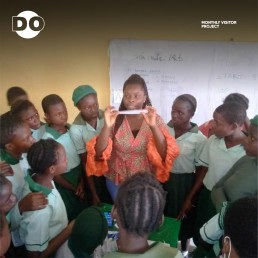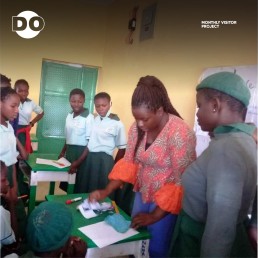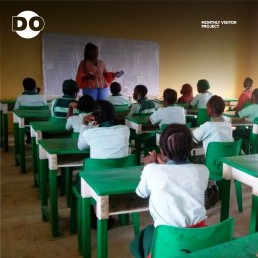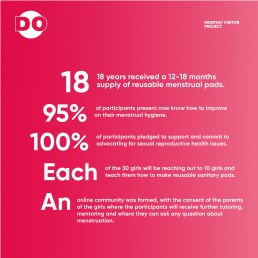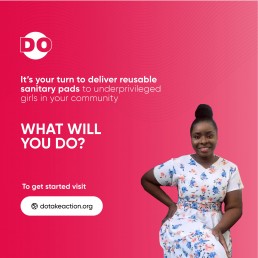THE NEED
There is one thing every woman shares in common; menstruation or, in the more common term, period. However, they share different stories of being informed and prepared for it.
Some had it drummed into their ears by their mothers that they could now be pregnant if touched by a boy. A few learnt about it in school during those separate sessions where female teachers took turns to share their knowledge, experience and best practices on the topic. Others learnt the hard way, through public embarrassment, that there is something called ‘Period’.
Because of the accessibility of information, you would think that the girls of this millennial are better informed and prepared on menstruation, and the reverse is the case.
Every month, 1.8 billion people across the world menstruate. Millions of these girls, women, transgender men and non-binary persons cannot manage their menstrual cycle in a dignified, healthy way. Over 37 million Nigerian adolescent girls and women of reproductive age lack access to menstrual hygiene products due to high costs.
A major constraint to effective menstrual hygiene management is the high cost of sanitary pads as a result of the harsh economic realities in the country. Sanitary pads cost an average of $1.30 per pack. Meanwhile, many families live below the poverty threshold of $1.20 daily.
As a result, many women and girls do not have access to materials to manage their menstruation. Girls and women with disabilities and special needs face additional challenges with menstrual hygiene. They are affected disproportionately by lack of access to toilets with water and materials to manage their period.
Poor menstrual hygiene has been linked to reproductive and urinary tract infections. But, with limited options for affordable menstrual materials, underprivileged girls don’t have a choice. 25-year-old Deborah Makanju, a Mathematics graduate of Nassarawa State University, decided to give them a choice.
There are two things Deborah is passionate about; Fashion and community development. As a Fashion Designer, she decided to launch a project, My Monthly Visitor, under the aegis of DO-Take Action, where she taught not only primary and secondary school girls on the importance of menstrual hygiene but also produced reusable pads to distribute to underprivileged girls that cannot afford a pad.
She launched the project in Junior Secondary School Kpepgyi Abuja, under the Good Health and Wellbeing program; a DO program that addresses key challenges in the health care sector by carrying out advocacy campaigns, health outreaches, capacity building workshops and community infrastructure projects that will ultimately improve quality of health care and impact at least 10 million Nigerians over the next ten years.
The details of the projects entailed the following;
- A keynote presentation on personal and menstrual hygiene; what to do during menstruation
- Materials and production of reusable pads
- Distribution of 1-6months supply of menstrual pads to underprivileged girls
- A self-assessment test to evaluate the girls on their understanding of what has been taught to ensure comprehension and assimilation
In the course of the project, a minimum of 30 participants (aged 9-21years) were sensitized about menstrual hygiene and how to improve on their menstrual hygiene. Thirty underprivileged primary/secondary school girls (aged 9-21 years) received 60 sanitary pads. In addition, 80 per cent of participants scored 80 per cent on the monthly visitor project test and now know how to improve their menstrual hygiene. Finally, 90 per cent of participants pledged to support and commit to advocating for sexual reproductive health issues. 20 GDCs were recruited from the participants to organize the Monthly Visitor Project outreach in their community.
Deborah Makanju saw a problem and used her craft to proffer a solution. What solution does your trade/career/profession proffer to your community?
If you enjoyed the story and would like to read more stories like this, sign up for our monthly newsletter to get notified of new stories.
Also, do well to follow our social media handles for more engaging and entertaining content on issues that affect YOU.
